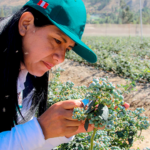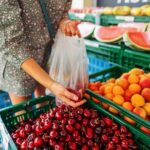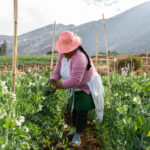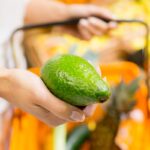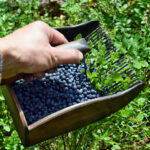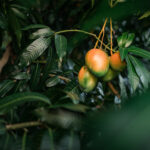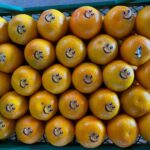Analysis of the profitability of avocado varieties in Mexico

In 2022-23, Mexico exported a little over 1.18 million tons of avocados to the U.S., according to data from Mexico’s National Customs Agency (ANAM). The Hass variety, a world-renowned cultivar, was the top variety, cementing its stronghold on the global market.
Grupo Enorma Founder Luis Enrique Ortiz told FreshFruitPortal.com that around 70% of avocados shipped to the U.S. from Mexico are of the Hass variety. The Méndez variety follows with a 25% share, and other crops such as Jiménez, Flor de María, and Maluma make up for the other 5%.
Enorma is one of the largest avocado nurseries in the country.

Grupo Enorma nurseries.
Usually consisting of 80 to 100 avocado trees per hectare (about 2.4 acres), Ortiz explained that Hass orchards are the oldest in Mexico. Despite the good results, he stressed that the industry currently needs change.
“I believe that change is becoming necessary, because Hass orchards are declining, due to the age of the tree, climate change, because this type of orchards do not have irrigation systems and some do not have water access,” he said.
The Mexican avocado industry has already implemented new measures, Ortiz said, such as increasing tree density per hectare. As the sector aims to reach a quota of 400 to 500 trees per hectare, irrigation systems have become essential, putting the spotlight on other cultivars.
New varieties
The Méndez variety, Ortiz said, enters production earlier than the traditional Hass. This, he said, gives it an appealing market price window.
"It's a variety that requires more nutrition and different management. That is also attributed to the type of project, which is high density," he said.
With thinner skin, good size, and a smaller pit, the Maluma variety shows great promise, Ortiz said. Malumas are even creamier than Hass avocados, but require much more intensive care.
“Malumas need a tutor in the branches, either wire or wood, this is because of the habit of growth that has are lateral producers," he explained.

Grupo Enorma avocados on the field.
As for the Flor de María variety, he commented that the main difference is the color of the pulp, "since it is more emerald green, not as yellowish as Hass sometimes tends to be. But the flavor is very similar.
For Ortiz, the Hass variety continues to be the star, "but in terms of profitability I think it is going to be left behind, because it is not the most productive variety, unlike Flor de María and Maluma".
Ortiz said he believes that the new varieties will gradually displace the Hass variety, "because in the end this is a business and I think people will be looking for varieties that are more productive or especially earlier".
Both Flor de María and Maluma have the advantage that they are very early, "from year 2 you already have a decent harvest, from 4 to 5 tons per hectare, which is very good," Ortiz assured.
He explained that it is very difficult to reach that number in that time with the Hass variety, "I have achieved 5 tons in the fourth year".
"In that sense, Hass has been losing participation in the orchards, I estimate that here in Mexico it must be at 70% and I project that the new varieties will be gaining momentum," he emphasized.
The Global Avocado Summit, organized by the Chilean Avocado Committee and the Yentzen Group, will be held on November 21 at the Casino Monticello event center in Chile.

















